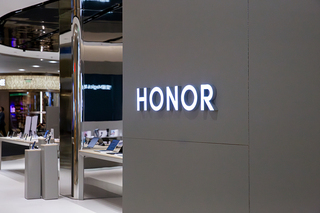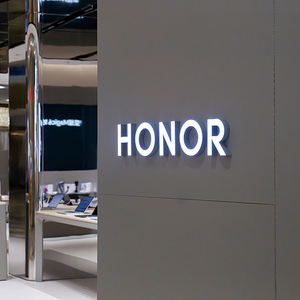by LU Keyan
On June 26, the China Securities Regulatory Commission disclosed that Honor Device Co., Ltd. had filed for IPO counseling, a formal preparatory process in China's listing regime. According to the filing, Citic Securities will oversee the counseling, which is scheduled for completion between January and March 2026.
The counseling phase involves regulatory training and compliance checks to standardize corporate governance and operational practices. Only after passing this stage can a company proceed to the submission and review of its IPO application.
In December 2024, Honor reformed itself into a joint-stock company, paving the way for the listing. Since then, the company has brought in a roster of state-owned and institutional investors. Its current shareholder base exceeds 20 entities, including Shenzhen Zhixin, Guoxin Capital, China Mobile, China Telecom, and BOE Technology. Shenzhen Zhixin New Information Technology Co., a state-led consortium that acquired Honor from Huawei in 2020, remains the controlling shareholder, with a 49.55 percent direct stake.
While Honor's domestic market share slipped in the first quarter of 2025, brisk overseas expansion helped offset the decline. Company data showed global smartphone shipments rose nearly 3 percent year on year, driven by over 50 percent growth in Latin America, the Middle East and Africa, and Asia Pacific.
According to supply chain data reviewed by Jiemian News, the launch week of the Honor Power model lifted the brand’s share of China's smartphone market by about five percentage points, returning it to the top five. WANG Ban, president of sales and services, said in an interview the company aims to reclaim a spot among China's top three by year-end.

The listing preparations coincide with sweeping organizational changes. In the first half of the year, Honor opened 38 key management positions for internal competition, with about a quarter of applicants born in the 1990s. The company also set up new divisions for AI and software and for emerging business incubation, making AI a strategic priority. In May, Honor announced plans to enter the robotics sector.
At the Mobile World Congress earlier this year, Honor unveiled plans to transform into an AI-centric device ecosystem player, pledging over US$10 billion in AI investment over the next five years. This month, it also signed a strategic agreement with China Mobile to co-develop AI smartphones based on the Honor X70i model—the first such partnership between a handset maker and an operator.
Honor has been among the most aggressive smartphone manufacturers in pursuing AI. Speaking at MWC Shanghai in June, CEO LI Jian argued that AI implementation hinges on two pillars: hardware as the essential carrier, and agents as the primary interface. With smartphones serving as the most widely adopted personal hardware, Honor sees AI as the next frontier and a critical growth opportunity.
This ambition is central to the narrative Honor is presenting to investors. While A-share markets already host numerous AI companies in areas such as chips, voice recognition, and computer vision, few are focused on AI-powered device ecosystems. By initiating IPO counseling, Honor is positioning itself to become China's first listed AI terminal ecosystem company.





